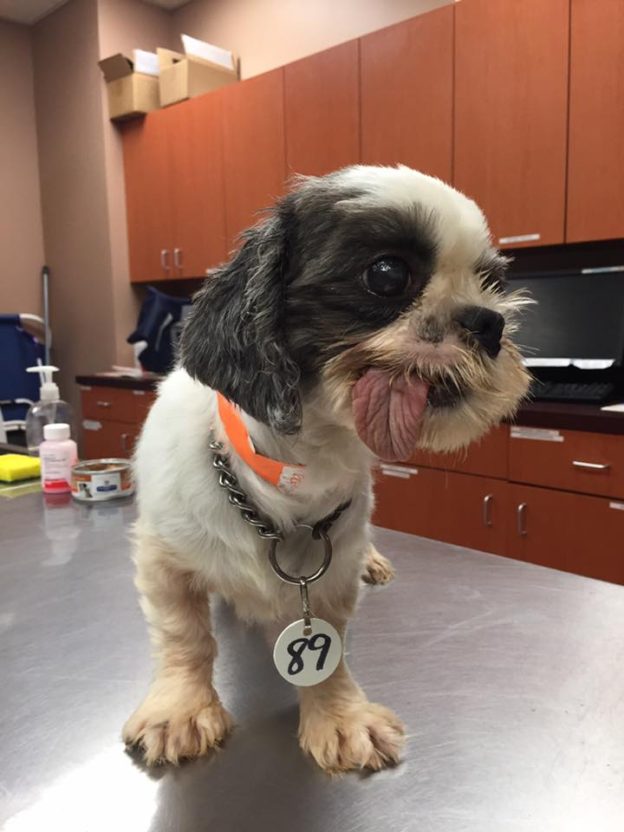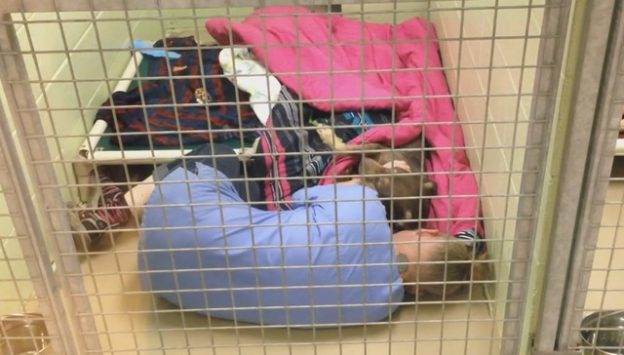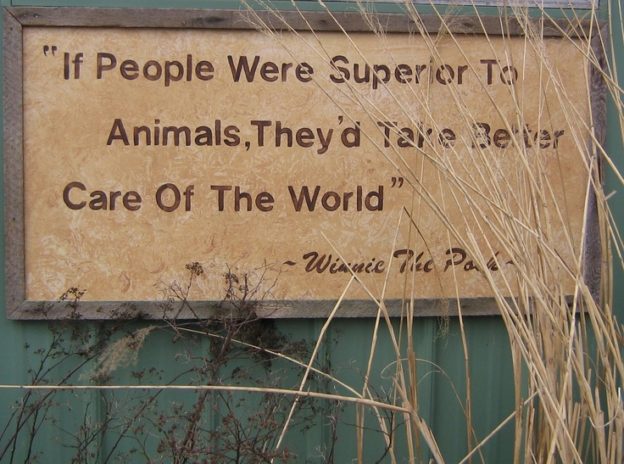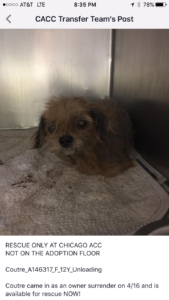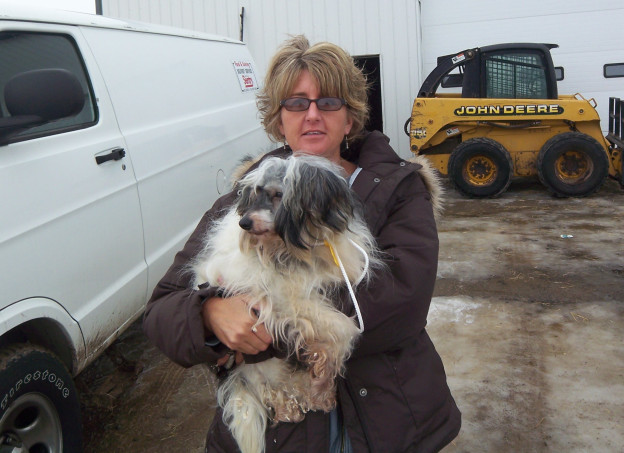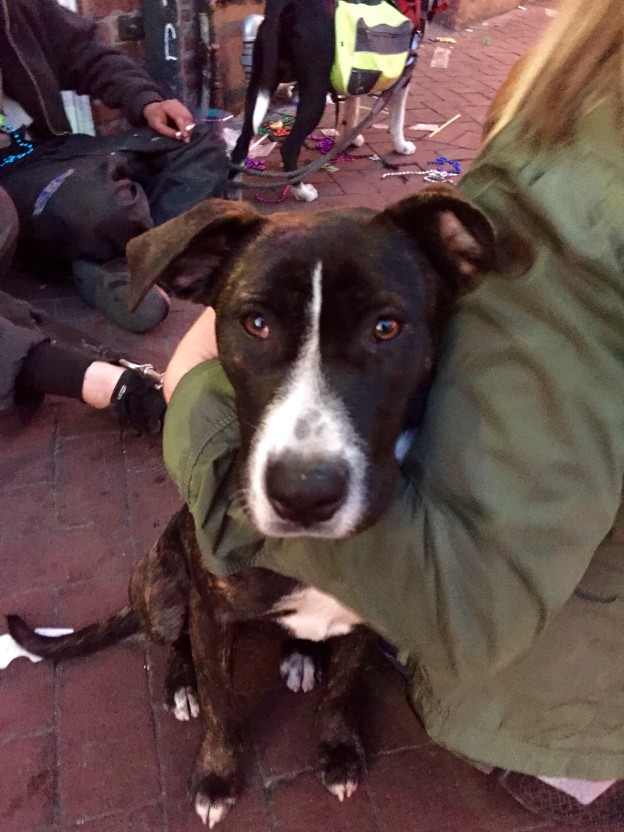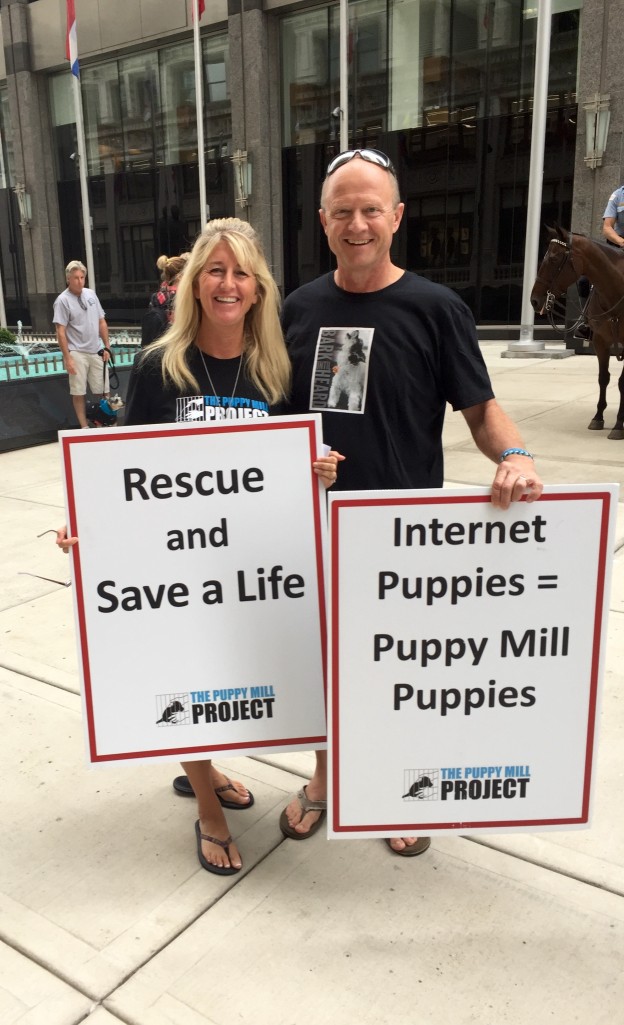I have been facing the harsh reality of puppy mills for nine years now. Nine years of waking up in the middle of the night picturing thousands of dog suffering in silence and feeling helpless to make it stop.
Politicians, lobbyists, breeders, the AKC, Big Ag companies all continue to argue that there is nothing wrong with puppy mills. They continue to fight every bill that comes along to help the dogs who have no voice. It sickens me, it hardens me and it makes me question my faith in humanity.
The last two days I spent at my vet clinic. Penelope, my mill rescue from 2009, is a Shih Tzu who is 12 years old now. Since October, she has been getting re-occuring corneal ulcers. They are extremely painful for her. On Sunday, she looked so bad we really thought she was going to die. Corneal ulcers are a common health issue for her breed. We got her the medical treatment and medicine she needs, including pain meds, to help the ulcer heal again. There is a good chance she will need surgery in the future if the ulcers keep happening.
Yesterday, I was at the clinic with Alice, my mill rescue from September. She is also a Shih Tzu. When she was rescued and I took her in, we really thought she was going to have to have her eyes removed. She has terrible dry eye and since it went UNTREATED in the mill for so long, her eyes were in horrific shape. I am happy to say that at her check-up yesterday her right eye is testing in normal range now thanks to the meds. Her left eye shows minor improvement and we will be working on a new medical plan. The good news is that her right eye is actually healthy and even if she has to lose her left eye at some point, she should always have vision in the right one.
Imagine if she was still in the mill? Still suffering day in and day out? No treatment, no medicine… She would go blind and live her life in total darkness and in constant pain.
Imagine if Penelope was still in the mill and her eyes began ulcerating like they are. No one would take her to the vet to get her pain meds. No one would get her the drops she needs to heal her eyes. No one.
Ever scratch your eye or get something in it? Ever have pink eye? Remember that pain? Remember how awful you felt. What if you had to live your entire life in that kind of pain?
As I sat at the vet clinic the last few days I started to think that maybe the general public doesn’t really comprehend the medical needs going untreated in the puppy mills across the United States. There are THOUSANDS of dogs not just living in crappy, rusty cages never to see the light of day, but THOUSANDS of dogs living in pain from health issues going completely untreated.
I looked at Penelope in the car on the way to the vet and saw her squinting and hiding her little head in her paws. It was obvious her pain was excruciating. There are so many Shih Tzu in mills across this country suffering just like her and NO ONE is getting them the help they need.
I thought about this all day. And yes, I know that there are dog owners who sometimes fail to get their dogs treatment due to time or money. They try, but for all kinds of reasons fail to get them the help they need. Do I approve of such ownership? No, of course not. However, there is one drastic difference between a dog owner and puppy miller: profit.
A puppy miller is breeding mass amounts of dogs to make money! They are making profit off the very dogs they refuse to give proper medical treatment to. To me, this is when puppy mills not only become the definition of animal cruelty, but when they cross the line and become CRIMINAL and should be ILLEGAL.
How, as a first world country, can we allow these horrifying mass breeding operations to continue when we KNOW that thousands of dogs are SUFFERING. SUFFERING – not just lonely or scared or unwanted, but in PAIN – horrible, CONSTANT pain.
So many of the popular breeds have medical issues that need monitoring. As I mentioned, Shih Tzu and many of the flat face breeds have eye issues. From dry eye to ulcers, to inward eyelids, these breeds often need medical treatment to live pain-free lives. English Bulldogs have numerous skin issues. If they are not kept properly cleaned in all of their skin folds, infection can become a huge issue. King Charles Spaniels have heart issues. Huskies have autoimmune disorders with sores and skin infections. German Shepherds are prone to hip dysplasia. Beagles often have Epilepsy. Cocker Spaniels get frequent ear infections. Poodles are prone to glaucoma. Chihuahuas can have collapsing trachea. Maltese can get Shaking Syndrome. Boston Terriers often get cherry eye.
These are just a few of the popular breeds found in puppy mills, all of which are prone to some illness or disease that is treatable with medications and/or surgery, yet NONE of these dogs will get this treatment in puppy mills. Instead, they will suffer – day in and day out.
Thousands of dogs have been rescued from mills demonstrating TIME AND TIME again that their medical conditions have gone untreated. Some lose eyes, some lose legs, some have only weeks to live once they are pulled from the mill because their health is so compromised.
Why aren’t more puppy millers in jail? Why isn’t this a CRIME? What kind of society KNOWINGLY ALLOWS this type of cruel behavior to not only exist, but to THRIVE and to PROFIT?
Let me be clear… Puppy mills aren’t just cruel because thousands of dogs live in cages with no human contact. THOUSANDS of dogs live every single day in pain – never to be treated by a veterinarian. Never to get those eye drops, or pain meds, or anti-seizure medications.
Please BE THE VOICE for these animals who literally SUFFER in SILENCE day after day.
We MUST do better for them.

